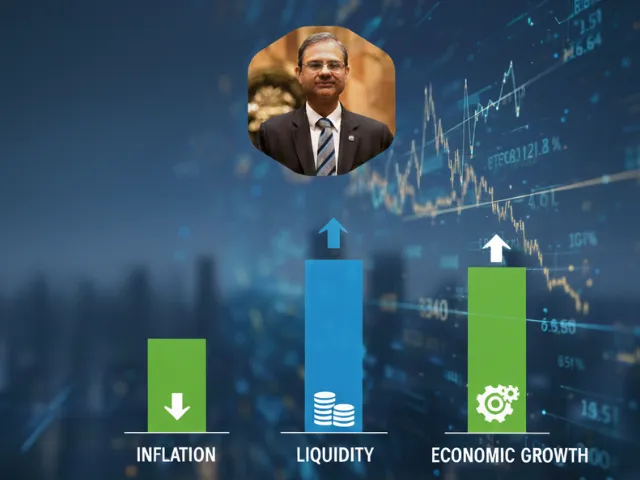



TL;DR
ABB India Ltd recently announced its Q4 FY25 results, stirring discussions among investors and analysts. While revenue growth exceeded market expectations, profitability faced headwinds due to rising input and labor costs. With a record order book and a healthy dividend, the question remains: is ABB India a stock to stay bullish on for the medium-to-long term?
ABB India reported revenue of ₹3,557 crore in Q4, up 5.7% YoY and exceeding the CNBC-TV18 estimate of ₹3,436.2 crore. This is a positive indicator of sustained demand for ABB’s automation, electrification, and robotics solutions in India’s industrial and infrastructure sectors.
However, net profit fell 18% YoY to ₹433 crore, missing analyst expectations of ₹442.6 crore. EBITDA declined 17% to ₹545.6 crore, and operating margins contracted sharply to 15.3% from 19.5% last year, reflecting pressures from material-cost inflation and higher labor costs, including compliance with new labor codes.
While profitability took a hit, the revenue beat demonstrates that ABB’s core business demand remains resilient, driven by automation and electrification needs in Indian industries.
A standout feature of ABB India’s Q4 results was the 52% jump in order inflows, marking the highest Q4 order intake in five years. This was fueled by broad-based demand across sectors and the timing of certain large projects.
For the full calendar year 2025, ABB India reported record orders of ₹14,115 crore and revenue of ₹13,203 crore, both up 8% YoY. Profit before tax margin stood at 16.9%, and return on capital employed reached 21%, reflecting strong operational efficiency despite margin pressures.
This order momentum indicates healthy pipeline visibility, which could translate into sustained revenue growth in upcoming quarters. For comparison, companies like Siemens India and Schneider Electric India also rely on order book growth as a proxy for long-term revenue potential. ABB’s robust order inflow positions it well relative to peers in industrial automation.
The board recommended a final dividend of ₹29.59 per share, subject to shareholder approval. This is significant as it signals management confidence in cash flows and financial health, even during a period of margin pressure.
For long-term investors, consistent dividend payouts combined with strong order books enhance ABB India’s attractiveness as a blue-chip industrial stock.
The decline in margins and net profit is largely due to:
Investors should consider these factors in the context of India’s industrial growth and renewable energy infrastructure spending, which continue to support ABB’s core business.
ABB India’s results highlight a classic scenario of revenue growth versus margin pressure. Key takeaways for investors:
Positives:
Concerns:
Overall, the stock appears suitable for medium-to-long-term investors, especially those bullish on India’s industrial automation and infrastructure expansion. Short-term traders or margin-focused investors may want to exercise caution.
India is currently experiencing robust industrial activity and infrastructure spending, supported by government initiatives like Make in India, National Infrastructure Pipeline (NIP), and renewable energy expansion. ABB India, with its automation and electrification portfolio, is well-positioned to benefit.
For example, ABB’s solutions in industrial robotics, smart grids, and renewable energy integration align with India’s push for efficiency, sustainability, and digital transformation. Investors should view ABB’s results as a barometer for industrial automation trends in India rather than short-term stock performance.
1. Why did ABB India’s net profit decline despite higher revenue?
Profit fell due to material-cost inflation and higher labor expenses, which compressed EBITDA margins.
2. How significant is the 52% Q4 order growth?
It represents the highest Q4 order intake in five years, signaling strong demand visibility for the next quarters.
3. Is ABB India a good stock for dividend income?
Yes, the company declared a final dividend of ₹29.59 per share, showing consistent shareholder returns.
4. Should investors focus on short-term gains from this stock?
ABB India is more suited for medium-to-long-term investors due to strong order pipelines but margin pressures limit short-term upside.
5. How does ABB India compare with peers in industrial automation?
ABB’s diversified portfolio and record order book position it competitively, though margin pressures are industry-wide challenges affecting all peers.
ABB India’s Q4 FY25 results demonstrate a resilient revenue growth story, robust order inflows, and shareholder-friendly dividends, though profitability remains under pressure. Investors with a long-term view on India’s industrial automation and electrification may find ABB India an attractive addition to their portfolio.
For reliable research, market insights, and seamless investing, platforms like Swastika Investmart offer SEBI-registered tools, strong customer support, tech-enabled trading, and investor education resources to make informed investment decisions.



ICICI Prudential Asset Management Company (ICICI AMC) is finally coming to the public markets, and investor interest is already buzzing. Backed by ICICI Bank and Prudential Group — two respected names in the financial world — this IPO has become one of the most anticipated listings of the year.
In this detailed breakdown, we analyse the company’s business model, strengths, risks, financial performance, valuation, peer comparison, and whether investors should consider applying. This analysis follows SEBI-aligned transparency, Indian market context, and strong research methodology backed by Swastika Investmart’s expertise.
ICICI AMC is an Asset Management Company — meaning it manages money on behalf of retail and institutional investors. This money is pooled through mutual fund schemes like:
The company’s core responsibility is simple:
Invest clients’ money responsibly and generate long-term returns while managing risk.
They earn revenue primarily from management fees, which are linked to their AUM (Assets Under Management). So, higher AUM → higher income → stable profitability.
As of September 2025, ICICI AMC reported a Quarterly Average AUM of ₹10,147.6 billion, reflecting its large market dominance.
Issue Type: 100% Offer for Sale (OFS)
Total Issue Size: ₹10,602.65 crore
Fresh Issue: NIL
Offer for Sale: ₹10,602.65 crore
Price Band: ₹2061–₹2165
Market Lot: 6 shares
Issue Opens: 12 December 2025
Issue Closes: 16 December 2025
Listing: BSE & NSE
Market Cap at Upper Band: ₹1,07,006.97 crore
Basis of Allotment: 17 Dec 2025
Refunds: 18 Dec 2025
Shares in Demat: 18 Dec 2025
Listing Date: 19 Dec 2025
This IPO is purely OFS — no new money comes into the company, as existing shareholder Prudential Corporation is reducing its stake.
Below is a clean text summary of the company’s consolidated financial performance:
Observation:
There is consistent revenue and profit growth, stable margins, strong balance sheet expansion, and market-leading profitability.
ICICI Bank + Prudential Group = instant trust among investors.
Equity, debt, hybrid, ETFs, PMS, AIF — all major asset classes covered.
EBITDA margin ~73% indicates superior cost efficiency.
272 offices across 23 states + strong digital onboarding ecosystem.
RoNW of 82.8% is among the best in the financial sector.
| Company | EPS (₹) | P/E | NAV (₹) | Revenue (₹ cr) | RoNW |
|---|---|---|---|---|---|
ICICI AMC |
53.60 |
40.37 |
71.20 |
4977.3 |
82.8% |
HDFC AMC |
57.60 |
45.20 |
189.80 |
3498.4 |
32.4% |
Nippon Life AMC |
20.30 |
41.00 |
66.40 |
2230.6 |
31.4% |
UTI AMC |
57.40 |
19.80 |
359.40 |
1851.0 |
16.3% |
ABSL AMC |
32.30 |
22.50 |
129.20 |
1684.7 |
27.0% |
Key Interpretation:
ICICI AMC leads the industry in RoNW, revenue scale, and premium brand value.
ICICI AMC is valued at P/E 40.37x (FY25). While not cheap, the valuation seems justified because:
Swastika Investmart’s research outlook suggests the IPO is positioned as a long-term compounding opportunity.
Here’s the balanced view:
Verdict:
If your aim is long-term wealth creation, this IPO is worth considering.
Yes, the company operates with minimal debt due to its asset-light model.
Regulatory changes from SEBI and market volatility impacting AUM growth.
Yes, 100% OFS, meaning no new shares are issued.
Its scalable digital ecosystem, massive distribution, and industry-leading RoNW.
Yes, through broker apps, UPI, or via Swastika Investmart’s seamless platform.
ICICI Prudential AMC stands out for its strong financials, brand backing, diversified product portfolio, and superb profitability metrics. While the IPO is a pure OFS, long-term investors may find significant value as the Indian asset management industry continues to expand with rising financialization.
If you're looking for stability, trust, and steady compounding, ICICI AMC can be a strong addition to your long-term portfolio.



The Indian banking industry has been transforming rapidly, especially with growing digital adoption, tighter regulatory frameworks, and stronger capital adequacy norms. In this evolving landscape, the Finance Ministry’s approval allowing AU Small Finance Bank (AU SFB) to raise its foreign investment limit from 49% to 74% marks a significant policy milestone.
This development is not just a technical regulatory update—it is a signal that could reshape the bank’s capital flexibility, global investor interest, and long-term growth trajectory. For investors, understanding the implications of this move is essential, particularly at a time when the BFSI sector is witnessing steady credit offtake and rising competition.
Let’s break down what this approval means, why it matters, and what you—as an investor—should track in the coming months.
By increasing the foreign direct investment ceiling to 74%, AU SFB gains access to a broader pool of international investors. This is important because:
For a bank aiming to scale lending, digital infrastructure, and geographical footprint, additional foreign capital improves both capacity and resilience.
Banks with higher FDI participation often gain better visibility among global funds and rating agencies. AU SFB could see:
In previous regulatory instances—such as when HDFC Bank or ICICI Bank saw increased foreign investor interest—market visibility improved significantly.
Additional foreign capital can support AU SFB’s long-term growth roadmap, which typically includes:
Higher capital levels also act as a buffer during stressed credit cycles, ensuring healthier balance sheet stability.
The FDI increase aligns with India’s broader efforts to attract overseas capital into regulated sectors. For the BFSI space, such policy green signals generally:
In recent years, foreign flows into financial services have been closely tied to India’s interest rate cycles and macroeconomic stability. This announcement may help AU SFB attract incremental FPI/FII inflows, especially from global funds focused on emerging market banking stories.
FDI limit enhancement is only the first step. Investors should monitor:
Large long-term funds coming in could boost the stock’s institutional credibility.
With growth comes risk. Key metrics to follow:
A stable or improving asset quality trend will be a positive indicator.
Capital infusion gives AU SFB the ability to expand lending, but investors should track:
If the bank maintains strong profitability while scaling, the FDI hike will translate into real value creation.
The RBI has been vigilant with SFB compliance on:
Any shift in regulatory expectations could influence AU SFB’s growth trajectory.
1. What does AU SFB’s FDI limit increase mean?
It allows foreign investors to own up to 74% of the bank, expanding its ability to attract global capital for growth and strengthening its balance sheet.
2. Will the bank immediately raise funds after this approval?
The approval only increases the permissible limit; actual fundraise depends on market conditions and management decisions.
3. How will this impact retail shareholders?
Higher FDI may improve liquidity, valuation visibility, and future growth prospects, though short-term market reactions may vary.
4. Is this positive for the small finance bank sector?
Yes. It may enhance global confidence in the SFB model and set the stage for similar policy flexibility for other players.
5. What risks should investors be aware of?
Asset quality pressures, credit cycle sensitivity, regulatory changes, and execution challenges during expansion.
The Finance Ministry’s approval for AU Small Finance Bank to raise its foreign investment limit from 49% to 74% is more than a policy update—it’s a strategic catalyst. It enhances the bank’s capacity to raise high-quality capital, strengthens institutional credibility, and opens doors for long-term expansion in a competitive banking ecosystem.
For investors, the next few quarters will be crucial to understand how the bank deploys new capital, manages its asset quality, and leverages growth opportunities.
For data-backed insights, investor education, and SEBI-registered guidance, platforms like Swastika Investmart empower you to make smarter, informed decisions—whether analysing regulatory updates or navigating market trends.



India’s healthcare sector has been one of the most resilient and fast-evolving spaces, backed by rising demand for speciality care, medical infrastructure expansion, and increasing insurance penetration. Against this backdrop, the Park Medi World IPO has generated noticeable investor interest ahead of its December 10–12 bidding window.
The company operates a large network of multi-super speciality hospitals under the “Park” brand and is already one of the largest private healthcare providers in North India. Given the strong fundamentals and sectoral momentum, the IPO has become a talking point among retail and institutional investors.
Let’s dive deeper into its business model, financials, valuation, strengths, and key risks.
Park Medi World runs 14 multi-super speciality hospitals across Haryana, Delhi, Punjab, and Rajasthan. Its hospitals offer more than 30 speciality and super-speciality services including:
All hospitals are NABH accredited, and eight facilities also hold NABL accreditation, reflecting strong clinical standards. The diverse speciality mix positions the group as a reliable healthcare provider across major population clusters.
Issue Open: 10 December 2025
Issue Close: 12 December 2025
Total IPO Size: ₹920 crore
Fresh Issue: ₹770 crore
Offer for Sale: ₹150 crore
Price Band: ₹154–162
Market Lot: 92 shares
Face Value: ₹2
Listing: BSE, NSE
Expected Market Cap: ₹6,997.28 crore
Issue Break-up:
Indicative Timetable:
The company plans to deploy the fresh capital for:
The ₹380 crore earmarked for debt repayment is expected to instantly improve net margins post-listing.
The valuation is reasonable when compared with premium-listed peers like Apollo Hospitals, Max Healthcare, Global Health, Krishna Institute of Medical Sciences, etc.
It is the second largest private hospital chain in North India and the largest in Haryana, offering deep regional penetration.
From oncology to orthopaedics, the wide range of specialities creates a stable revenue stream and enhances patient retention.
NABH and NABL certifications across multiple hospitals strengthen clinical credibility.
A proven track record of acquiring and integrating hospitals gives the company an edge in expansion-driven growth.
Consistent revenue growth, strong margins, and improving net worth make the financials robust.
Running large multi-speciality hospitals demands constant capex and skilled manpower, impacting cost structures.
The sector faces strict regulatory oversight relating to pricing, reporting, and medical standards.
Private hospital chains and government institutions both create competitive intensity in major markets.
Availability and retention of skilled doctors and staff remain critical to operational stability.
Certain treatments and admission rates fluctuate seasonally, affecting quarterly performance.
Although the company claims no direct comparable peers with the same business model, listed players in the broader healthcare space include:
Park Medi World’s valuation is noticeably lower compared to many of these, offering an attractive entry point for long-term investors seeking healthcare exposure.
The IPO arrives with a favorable mix of growth, profitability, and reasonable valuation. Key positives include:
With growing healthcare consumption, rising insurance penetration, and government-backed initiatives supporting medical infrastructure, Park Medi World is well-positioned to benefit from structural sectoral demand.
For medium to long-term investors, the IPO appears to offer a solid combination of stable business fundamentals and attractive valuation.
1. What is the price band of the Park Medi World IPO?
The IPO is priced at ₹154 to ₹162 per share.
2. How is the company financially performing?
In FY25, Park Medi World generated ₹1,425.97 crore in revenue, with a 26.11% EBITDA margin and ₹213.22 crore net profit.
3. What will the company use the IPO proceeds for?
Funds will be used for expansion, equipment purchase, marketing, and debt repayment.
4. Is the valuation attractive?
At 29.21x P/E, the valuation is reasonable compared to major listed hospital chains with significantly higher multiples.
5. Is this IPO suitable for long-term investors?
Given the strong operating performance and regional leadership, the IPO suits investors seeking long-term exposure to India’s healthcare growth story.
Park Medi World’s IPO comes at a time when healthcare demand in India is rising rapidly. With strong financials, expanding capacity, and a track record of consistent execution, the company presents a compelling long-term investment case. As always, aligning IPO investments with your risk appetite and financial goals is important.
For deeper insights, SEBI-registered guidance, and easy investing tools, platforms like Swastika Investmart help investors make informed decisions with confidence.



India’s healthcare ecosystem has transformed rapidly over the past decade, with specialized service providers playing a crucial role in bridging critical care gaps. One segment that has grown consistently is dialysis care, driven by rising chronic kidney disease (CKD) cases and limited access to quality treatment in Tier II and Tier III cities.
Against this backdrop, Nephrocare Health Services, Asia’s largest dialysis care provider and the world’s fifth-largest by treatment volume, is launching its IPO from December 10 to December 12. The company’s scale, operational footprint, and unique service model have attracted strong investor attention.
This analysis breaks down whether the Nephrocare IPO deserves a spot in your portfolio.
Founded in 2010, Nephrocare offers end-to-end dialysis services, including diagnosis, haemodialysis, mobile dialysis, home dialysis, and wellness programs. The company also runs an in-house pharmacy, which enhances value per patient and operational efficiency.
As of September 30, 2025, Nephrocare operated:
Its international presence includes the world’s largest dialysis clinic in Uzbekistan, highlighting its execution capability outside India as well.
Nephrocare also partners with major hospitals such as Max Super Speciality Hospital, Fortis Escorts, Care Hospitals, Wockhardt Hospitals, Paras Healthcare, Jehangir Hospital, and Ruby Hall Clinic—strengthening credibility and patient inflows.
Here is the IPO information converted from the table into clean descriptive text:
Important dates:
According to the RHP and uploaded note, the proceeds will be used for:
This aligns with Nephrocare’s expansion-led growth model.
Here is the table translated into simple text:
FY23 to FY25 Financial Trend
This financial trajectory shows that Nephrocare has achieved consistent revenue growth, margin expansion, and a turnaround from losses to profits within two years.
However, the note also highlights that higher finance costs affected profitability in H1 FY26, indicating the impact of expansion-related borrowing.
The IPO is valued at 63.52x earnings, based on FY25 EPS of ₹8.28.
When compared with listed Indian healthcare players:
While a direct comparison is difficult due to Nephrocare’s unique dialysis-focused model, the valuation appears aggressive, especially considering its relatively smaller scale compared to multispecialty hospital chains.
This suggests that strong listing gains are not guaranteed unless subscription is exceptionally high.
Dialysis demand in India is rising sharply due to:
The sector’s growth is resilient and relatively non-cyclical, which helps companies like Nephrocare maintain steady patient footfall regardless of market cycles.
SEBI’s oversight on IPO disclosures and IRDA/RBI-backed financial compliance add another layer of investor protection.
Nephrocare presents a strong long-term growth opportunity powered by scale, rising healthcare demand, and a proven operating model. However, the valuation premium and capital-intensive nature of the business require cautious optimism.
Best suited for:
✔ Aggressive long-term investors
✔ Those who believe in chronic-care healthcare models
✔ Investors comfortable with higher valuations
Not ideal for:
✘ Risk-averse investors
✘ Those seeking guaranteed short-term listing gains
1. Is Nephrocare IPO good for long-term investment?
Yes, provided you are comfortable with higher valuations and expect steady growth in healthcare services.
2. How has Nephrocare performed financially?
The company grew revenues from ₹443 crore in FY23 to ₹770 crore in FY25, with profits improving sharply.
3. Why is the valuation considered aggressive?
Its P/E of 63.52x is higher than many listed healthcare peers, despite smaller revenue size.
4. What makes Nephrocare different from hospital chains?
It is a pure-play dialysis provider, giving it specialization advantage but also limiting diversification.
5. Who should avoid this IPO?
Investors seeking low-risk opportunities or short-term listing gains may skip.
Nephrocare’s IPO brings a unique healthcare opportunity to the Indian markets. The company’s strong presence in underserved regions, international expansion, and improving financials make it a compelling option for long-term investors. However, the valuation premium means investors must balance growth potential with cautious expectations.
For investors who want expert research, seamless IPO application, and tech-enabled investing backed by a SEBI-registered entity, Swastika Investmart provides a trusted platform.



The recent approval granted to Fino Payments Bank by the Reserve Bank of India (RBI) has revived conversations around the future of digital banking and financial inclusion in India. The lifting of restrictions marks a crucial turning point for a bank that has always positioned itself as a last-mile service provider, especially across Tier-3 and rural regions.
With India’s financial ecosystem becoming more digital and regulated than ever, this move carries significant implications—not just for customers, but also for fintech competition, investor sentiment, and the overall payments landscape.
Let’s break down what this development means, why it matters, and how it may shape the future of India's financial inclusion efforts.
Payments banks were conceptualized to bridge India’s financial inclusion gap by offering safe, low-cost digital banking services. When the RBI reinstates operational clarity to such a player, it sends a signal that the model still holds value—especially for enabling micro-transactions, doorstep banking, Aadhaar-enabled services, and cash-in/cash-out points.
Fino has a strong presence across rural pockets, functioning like a bridge between formal banking systems and underserved communities. With the recent approval, the bank can accelerate operations that were earlier limited or paused.
Customers can expect smoother access to services like:
This is crucial for regions where traditional banking infrastructure remains limited.
Fino’s vast merchant network—spanning kirana stores, CSCs, and micro-businesses—supports millions of small-value transactions daily. With RBI’s go-ahead, these services resume normalcy, ensuring uninterrupted financial activity in remote areas.
RBI oversight ensures improved operational controls, cybersecurity protocols, and customer protection—important for users who rely heavily on cash-led transactions.
While the development does not directly move major indices, it does influence sentiment across:
Investors read RBI’s decision as a signal of stability and consistency in the regulatory stance toward digital financial models. This comes at a time when India is rapidly advancing toward a less-cash economy driven by UPI, Aadhaar-based verification, and interoperable infrastructure.
When Airtel Payments Bank received regulatory clarity in the past after temporary restrictions, customer activity rebounded quickly. A similar rejuvenation could occur for Fino, particularly in domestic remittances and agent-assisted banking.
India’s unique financial landscape requires both digital and physical touchpoints. Fino’s large on-ground network complements digital interfaces, making it easier for first-time users to adopt formal banking.
Reforms such as:
get a direct operational boost as the last-mile delivery channel becomes more robust.
Banking correspondents, micro-merchants, and rural service points benefit economically from resumed services.
While players like Airtel Payments Bank, India Post Payments Bank, and small finance banks continue strengthening their digital stack, the reinstatement allows Fino to re-align its position.
Amid this, Swastika Investmart stands apart in helping investors interpret such developments with:
These strengths matter when markets move on regulatory developments, especially in emerging sectors like fintech and digital banking.
1. Why did RBI’s approval for Fino Payments Bank create buzz?
Because it restores full operational capacity, enabling the bank to continue serving millions of customers in rural and semi-urban India.
2. Will this impact other fintech or payments bank stocks?
Not directly, but it improves confidence in the payments bank ecosystem, which can positively influence sectoral sentiment.
3. Does Fino's reinstatement help financial inclusion?
Yes. It strengthens last-mile service delivery, which is central to India’s financial inclusion mission.
4. Are customers safe using services after RBI’s nod?
Yes. RBI clearance indicates adherence to regulatory norms, improving trust and operational transparency.
5. Should investors consider fintech or banking stocks now?
Investors should evaluate fundamentals, compliance track record, and growth opportunities—preferably with guidance from a SEBI-registered advisor like Swastika Investmart.
RBI’s approval for Fino Payments Bank is more than a compliance milestone—it’s a reaffirmation of India’s vision of inclusive, accessible, and digitally empowered banking. As demand for low-cost, last-mile financial services grows, players like Fino will continue shaping the future of rural and semi-urban banking.
For investors, staying informed about such regulatory developments is essential. That’s where Swastika Investmart, with its strong research tools and investor-first approach, empowers you to make smarter decisions.



The Reserve Bank of India (RBI) delivered its much-awaited December 2025 Monetary Policy, announcing a 25 bps cut in the repo rate, bringing it down to 5.25%. This move signals the central bank’s intent to revive economic momentum while ensuring inflation stays within the target band.
For the Indian financial markets, banks, borrowers, and businesses, this rate cut carries significant implications. Here’s a detailed breakdown of what the latest monetary policy means and how it shapes the economic landscape going into 2026.
The repo rate—the rate at which banks borrow funds from the RBI—plays a key role in controlling inflation and supporting growth.
Despite temporary spikes due to food inflation, core inflation has stayed within the comfort zone. This gave the RBI room to support growth through a moderate rate cut.
A lower repo rate makes loans cheaper.
This helps push consumer spending in sectors like real estate, auto, and fintech lending—critical pillars of India’s economy.
With global economic uncertainty and weakening exports, domestic growth needs a push. The rate cut aims to strengthen India’s economic resilience.
A rate cut can potentially increase demand, which may push inflation slightly higher.
However, RBI expects food inflation to soften and supply chains to improve, keeping overall inflation manageable.
Lower repo rates make borrowing easier for banks, improving overall systemic liquidity.
This helps NBFCs, fintech lenders, and sectors dependent on credit availability.
A 25 bps cut boosts:
Economic activity tends to pick up when borrowing becomes cheaper.
Borrowers with floating-rate home loans, car loans, and personal loans could see reduced EMIs in the coming cycles.
Banks may push more credit to accelerate growth, improving overall lending conditions.
Borrowers may consider switching lenders to take advantage of lower interest rates.
With cheaper loans, demand for retail and business credit may rise.
Lower rates can reduce banks’ margins, especially for those with higher cost of funds.
Banks in home loans, vehicle financing, and personal loans may see stronger growth.
Stock markets generally react positively to rate cuts because they improve economic outlook.
While the RBI did not commit to future cuts, the tone of the policy was accommodative.
Future rate cuts will depend on:
To support economic growth, improve liquidity and encourage borrowing while inflation remains manageable.
Yes, floating-rate loans are likely to see reduced EMIs as banks gradually pass on the rate cut.
Inflation may rise if demand shoots up aggressively, and bank margins may remain under pressure.
Real estate, auto, banks, NBFCs, and consumer discretionary typically gain from lower interest rates.
Not confirmed, but RBI’s stance appears accommodative, opening the door for further adjustments depending on inflation data.
RBI’s December 2025 monetary policy marks a key moment for India’s economic road ahead.
The 25 bps cut to 5.25% aims to strike a balance between supporting growth and keeping inflation under control. Borrowers, banks, and financial markets stand to benefit from improved liquidity and cheaper credit.
As India heads into 2026, monitoring inflation, global cues, and domestic demand will be important to understanding RBI’s next moves.
If you want to navigate such market shifts with expert-backed research, tools, and dedicated support, Swastika Investmart can be your trusted partner.


Trust Our Expert Picks
for Your Investments!



